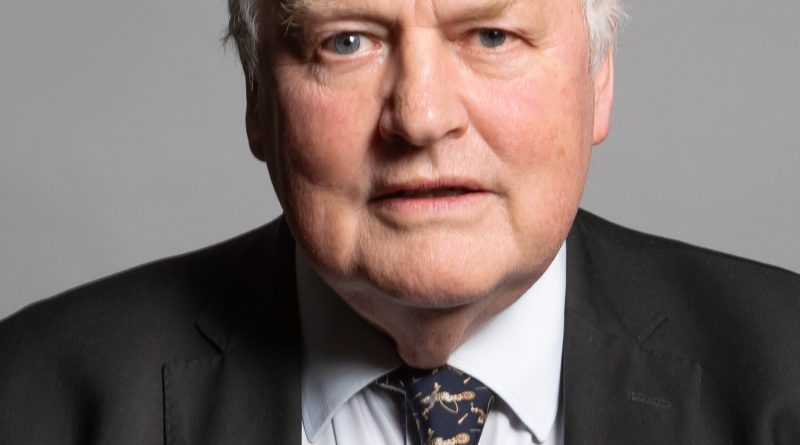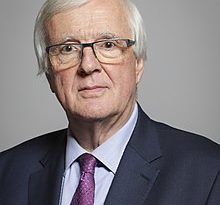Bob Stewart – 2022 Speech on Holocaust Memorial Day
The speech made by Bob Stewart, the Conservative MP for Beckenham, in the House of Commons on 26 January 2022.
Instances of genocide continue, and, very sadly, I have been witness to them—in particular, in Bosnia during 1992-93, when I commanded the battle group of the 1st Battalion, The Cheshire Regiment. Let me give the House an example.
On 22 April 1993, I learnt that women and children had been massacred in a village in the Lašva valley. I did not believe it, so I went there, taking about 30 men and about six vehicles. As I approached the village of Ahmići from the south, I was struck by what a beautiful place it was, or had been. The first building I saw was the mosque, which was new, but wrecked. The minaret had been broken by explosions, and it was pointing at the sky like a pencil. Most of the other buildings in the village—it was a linear village, about a mile in length—had been destroyed by fire. Some had not been destroyed; we later discovered that they belonged to Bosnian Croats, not Bosnian Muslims.
Each building had been destroyed by fire, explosions or shooting. The windows had black marks around them, and the roofs had collapsed. Only later, because we did not see it immediately, we discovered that bodies were underneath the roofs. Outside the houses, the gardens looked kind of normal, except for the detritus of war: downed cables, bricks, burnt-out cars, and dead pets. Everywhere was the disgusting smell which comes from the chemical reactions that accompany death. It was cloying and it was foul.
I went all the way to the far end of the village, the north end. I deployed my men, and we started looking. We did not see bodies initially—until we came to house number seven. The murderers had failed to disguise what had happened there. At an entrance to the house, there was a man and a boy. They were dead. They looked like they had been burnt. They did not seem to have clothing on them. The little boy, or the teenage boy, had his arm upwards in front of his face, and his fist was balled, and the bones had been burnt through.
My soldiers said, “Look behind the house, Sir.” I went into a cellar. The cellar had agricultural tools and strings of onions or vegetables on the walls. In the middle, there was this mass—this greyish, blackish mass. I did not really understand what I was looking at—then I did! The first thing that hit me was the disgusting smell, and then I realised I was looking at bodies—at least two adults, several children. One of the women, and they were women, presumably being protected by the men who were killed at the door, had her back so arched back. Her back was bent—she was lying, and her head was back. God! She was burnt. Everything was burnt, except for her eyes. Her eyes were not burnt. I fell back in horror at what I had found. I rushed outside and was violently sick.
Later, one of my soldiers, and he was a bandsman, because we used the band as stretcher bearers and I asked the band to help clean up, was shovelling the remains—shovelling the remains—of a human being into a bag on a stretcher, and he turned to me and said, “Sir, this is Europe in 1993, not Europe in 1943.” I did not know what to say.
On the memorial in that village, which I am going to visit shortly—at Easter—there are 116 names of everyone killed, as far as can be ascertained. My men and I dug a mass grave and put, as far as we could tell, over 104 bodies into that mass grave. They were Bosnian Muslims; there was not a Bosnian Croat among them.
We did not just discover them, but found families lined up—shot down. One little girl was holding a puppy. The puppy was dead, and so was she, killed presumably by the same bullet. We took that family to the local morgue. Next day, we went back and discovered that the bodies had been put back at the house because it was the wrong morgue. We had taken them to a Croat morgue, not a Muslim morgue.
Within a month, I was in Srebrenica and watched more genocide occurring, this time with Bosnian Serb artillery firing at human beings. There were about 20 people killed around us as we went. Some of my soldiers were slightly wounded, no one killed.
You see, I consider Holocaust Memorial Day to be so incredibly important not just because of the people who were killed in the second world war in the 1930s and the 1940s. It was not just the second world war: the Germans, or the Nazis—forgive me, I am not talking about the Germans; I am talking about the Nazis—managed to start doing it before the second world war. Then we have had instances since, with Darfur, Bosnia that I have witnessed, Rwanda and Cambodia.
My mother visited Belsen in 1945. She was in the Special Operations Executive. I did not know that until a few years before she died. I did not know she was a spy. Women are always much better at keeping secrets than men. I said to her, “Why, mum, have you never told me that you went to Belsen in 1945 looking for SOE officers?” She said, “Robert, I was ashamed.” I said, “Why were you ashamed? You did things like learn to parachute when you were 22 and put yourself in danger. You did everything you could.” Colleagues, she said, “I was ashamed because it happened in my generation.”
The purpose of Holocaust Memorial Day, and the memorial of all those people who died in the second world war and all those who have died in genocides since, is for us to feel collective responsibility for stopping it from happening again. That is why this day, and this memory of all those innocents who have died, is so incredibly important.


